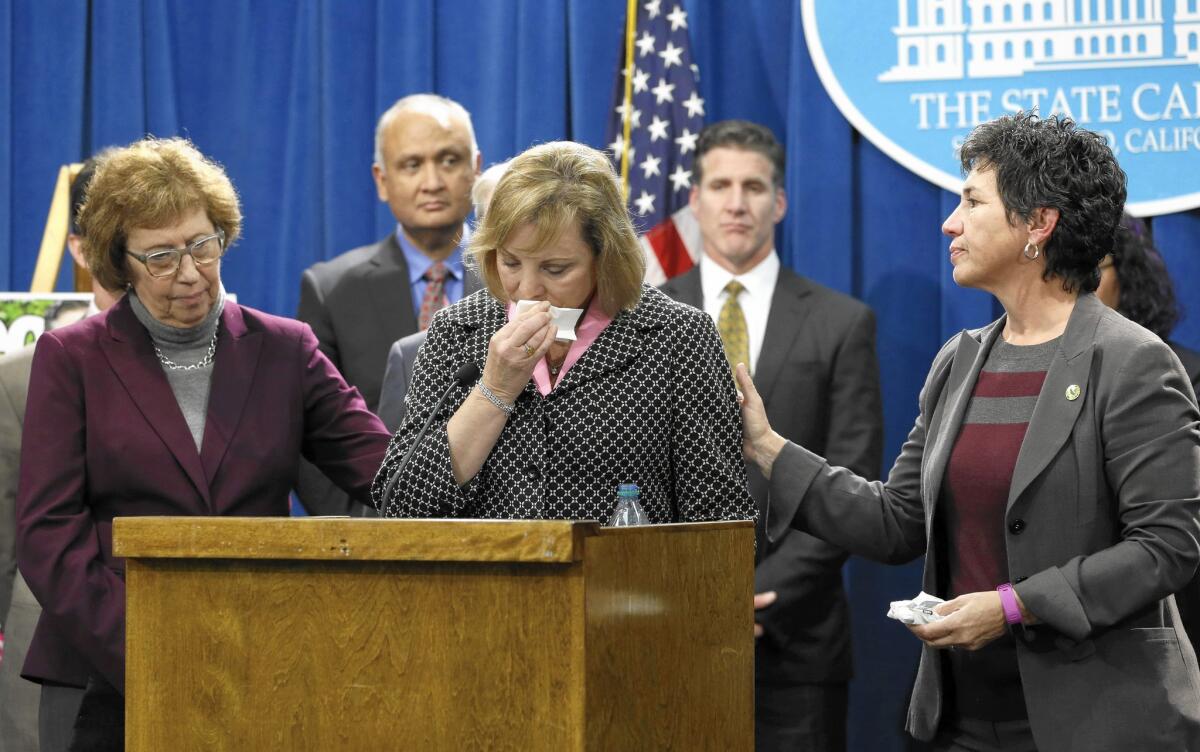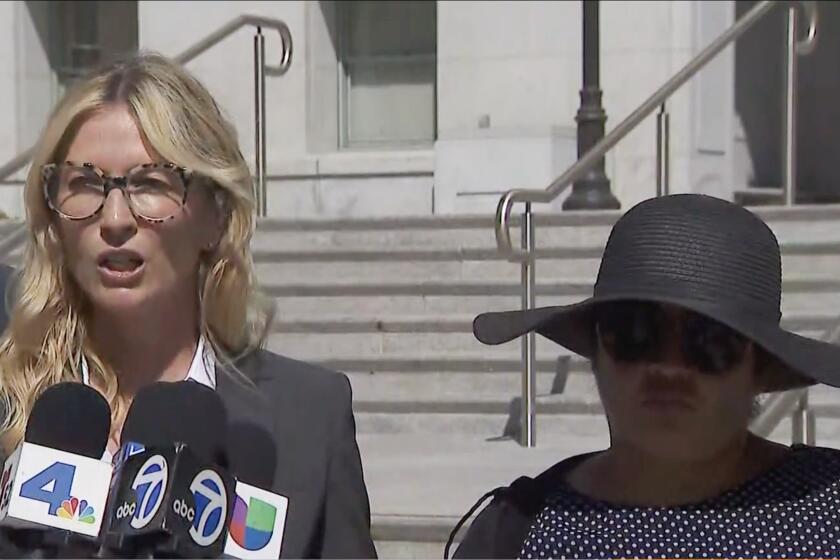Capitol Journal: How we die should be a personal choice, not the government’s

Many terminally ill patients fear dying slowly in pain. They’d like to cut short the agony.
But some with disabilities worry about being pressured into suicide.
Still others believe their god insists they die naturally even if suffering.
Me, I’d like to make my own decision, thank you. No government or religion telling me what I can or cannot do with my own body.
It all adds up to potentially the most emotional issue of the new California legislative session.
Politicians and interest groups can’t even agree on what we should call this. Everyone’s playing word games trying to subtly tilt the debate.
Advocates of changing the law to allow for expedited, voluntary, doctor-aided death call it the End of Life Option Act. In Oregon, it’s referred to as “death with dignity.” Opponents just brand it “assisted suicide.” It’s all the same.
But “there are emotionally charged connotations with the word ‘suicide,’ ” notes Assemblywoman Susan Talamantes Eggman (D-Stockton), a coauthor of the new legislation. “That’s what the opposition wants you to use.”
The bill is SB 128, also coauthored by Sens. Lois Wolk (D-Davis) and Bill Monning (D-Carmel). It would allow mentally competent California residents with less than six months to live obtain physician-prescribed lethal drugs that they’d administer themselves.
A patient would need two doctors to confirm the illness was terminal. Also required: two oral requests 15 days apart and a written version witnessed by two people. Physicians, pharmacists and healthcare facilities could opt out. Those participating would be protected against lawsuits. Coercing a patient would be a felony.
The first committee hearing is set for March 25. Sponsors hope for a Senate floor vote by June.
Very likely this will be one of those rare “you could hear a pin drop” debates. “People have intense feelings,” Wolk says.
“But everybody has a personal story. My mother died when I was 17 from cancer and it was pretty brutal. It’s a rare person who hasn’t had an experience with death of a loved one, a family member or a very good friend. And at the end of the story, everyone says there must be a better way.
“People should have the right to a peaceful death and not go through suffering.”
If it passes the Senate, the bill will face a tougher hurdle in the Assembly. There, many Latinos represent heavily Catholic constituencies and are leery because of church opposition.
Gov. Jerry Brown, a former Jesuit seminarian, hasn’t taken a position.
“California is ready for this,” Eggman says. “I’m not sure the Assembly is ready. But if it doesn’t go through the Legislature, there’ll probably be a ballot initiative.”
Better to filter the proposal through the checks and balances of the state Capitol. Too many initiatives have been clumsily written with unintended consequences.
The last significant California polling was nine years ago by the nonpartisan Field Poll. It found 70% support for terminal patients being allowed to take life-ending medication.
But the next year, such a proposal was shelved in the Assembly for lack of support. The Catholic Church had played nasty.
Then-Cardinal Roger M. Mahony, speaking to worshipers at the cathedral in Los Angeles, charged that then-Assembly Speaker Fabian Nunez was part of “the culture of death” because he supported the legislation.
The Catholic Church also opposes the new bill, but is taking a back seat.
It’s letting disability-rights activists do most of the heavy fighting. They fear the legislation would become an easy tool that inconvenienced family members and greedy insurance companies could use to rid themselves of burdensome and costly patients with disabilities.
“There’s a deadly mix when you combine our broken, profit-driven healthcare system and legal assisted suicide, which would instantly become the cheapest treatment,” says Marilyn Golden, a senior policy analyst for the Disability Rights Education and Defense Fund.
She adds: “There’s a prejudice in society that a disabled person’s life is not worth living.”
Catherine Campisi, former director of the state Department of Rehabilitation and a disabilities activist, points out there already are options for the terminally ill. They can stop treatment, go into hospice care and be administered palliative sedation, “which keeps them comfortable while the dying takes place.”
Well, not always, according to many who have watched someone close die while suffering in a medicated fog.
Dr. Robert Olvera of Santa Ana, a family physician, watched his 25-year-old daughter Emily die from a rare type of leukemia last year. “During the final four months,” he says, “she suffered a stroke, went blind, was unable to feed herself, used Depends. It was basically a dark world.
“Pain medicine wouldn’t do it. She wanted me to give her something to put her to sleep permanently. I didn’t want to do that. If we had known it was legal in Oregon, we would have taken that option. She finally elected to starve herself.”
Starve yourself. Pull the plug. Or take a drug. Same result. You should be allowed to choose the least painful, quickest route that fits your beliefs.
Doctors take an oath to “do no harm.” That’s why the California Medical Assn. has opposed similar proposals previously, although it hasn’t taken a position on the latest bill.
“I don’t feel that helping with end-of-life decisions is harming anyone,” Olvera says.
There’s no universal right or wrong in any of this. It’s only right or wrong for yourself.
george.skelton@latimes.com
Twitter: @LATimesSkelton
More to Read
Sign up for Essential California
The most important California stories and recommendations in your inbox every morning.
You may occasionally receive promotional content from the Los Angeles Times.






